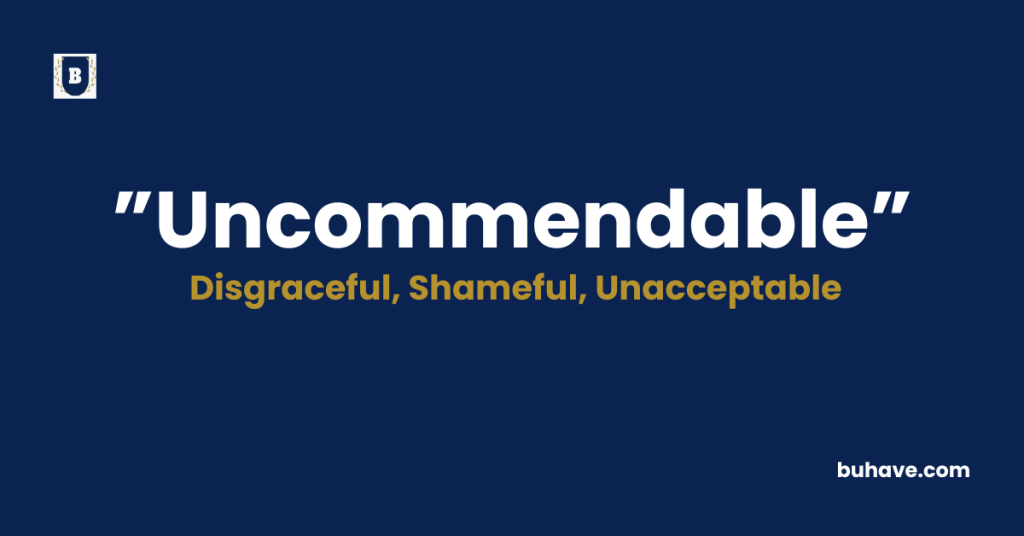The word Uncommendable (adjective) describes something that is not worthy of praise, approval, or admiration. In this guide, you’ll learn the full definition, synonyms, antonyms, etymology, and real-life examples of how to use Uncommendable correctly in sentences.
Uncommendable Explained in Depth
A complete and detailed guide to the word Uncommendable including meaning, definition, examples, etymology, synonyms, and antonyms.
Meanings of Uncommendable
Uncommendable means lacking merit or value that would make it deserving of praise. It describes actions, behaviors, or things that are not respectable or admirable.
Definition
Uncommendable refers to something that is not praiseworthy or does not deserve recognition due to poor quality, lack of effort, or inappropriate nature.
Etymology
The word uncommendable is formed by adding the prefix un- (meaning “not”) to commendable, which comes from the Latin commendare meaning “to praise or entrust.” Thus, uncommendable literally means “not worthy of praise.”
Example Sentences
- His uncommendable attitude during the group project disappointed everyone.
- Submitting copied work is uncommendable behavior in any academic setting.
- The company’s uncommendable practices drew criticism from the public.
Uncommendable Synonyms
- Unworthy
- Blameworthy
- Deplorable
- Disgraceful
- Shameful
- Dishonorable
- Reprehensible
- Unimpressive
- Undesirable
- Undignified
Uncommendable Antonyms
- Commendable
- Praiseworthy
- Admirable
- Respectable
- Honorable
- Worthy
- Upright
- Virtuous
- Creditable
- Notable
FAQs about Uncommendable
Here are some FAQs (Frequently Asked Questions) about the word “Uncommendable”
What does “uncommendable” mean?
It means something that is not deserving of praise, admiration, or approval due to its nature or quality.
Is “uncommendable” a common word?
No, it is relatively uncommon in modern usage, but it is still understood in formal or descriptive writing.
Can a person be described as uncommendable?
Yes, particularly when referring to their behavior, character, or actions that lack virtue or merit.
Is “uncommendable” always negative?
Yes, it carries a negative connotation, implying the absence of something good, praiseworthy, or respectable.
How is it different from “unworthy”?
“Unworthy” is more general, while “uncommendable” specifically focuses on the lack of praiseworthiness or merit.

















